Zotac GeForce RTX 3090 Trinity OC 24GB Specs
Here are the ZOTAC GeForce RTX 3090 Trinity OC specifications:
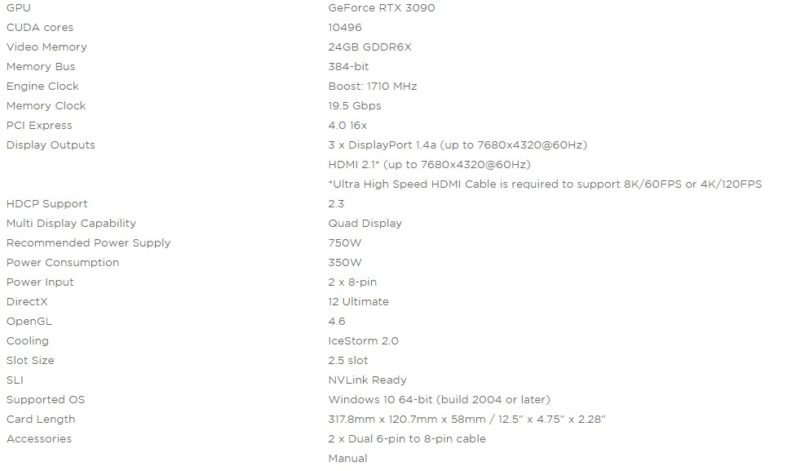
As you can see, we get the same 24GB of GDDR6X on this card. The big “OC” is the boost clock. This card has a 1710MHz boost clock. Still, the power consumption at 350W is the same as many of the other features. Here are the non-OC version’s specs from William’s review.
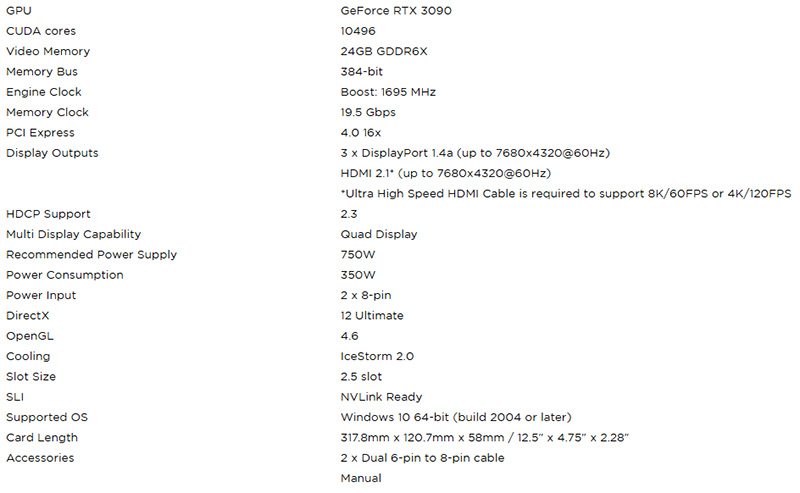
If you want to learn more about the NVIDIA RTX 3090 in general, you can see our original NVIDIA GeForce RTX 3090 Review.
We go over many of the basics of the GeForce RTX 3090 platform in that piece.
Zotac GeForce RTX 3090 Trinity OC 24GB Performance versus the Non-OC Edition
Instead of doing many pages of GPU review content, we are just going to show the delta between this card and the non-OC version. Once you see the deltas, it will make sense why we are not doing charts like these.
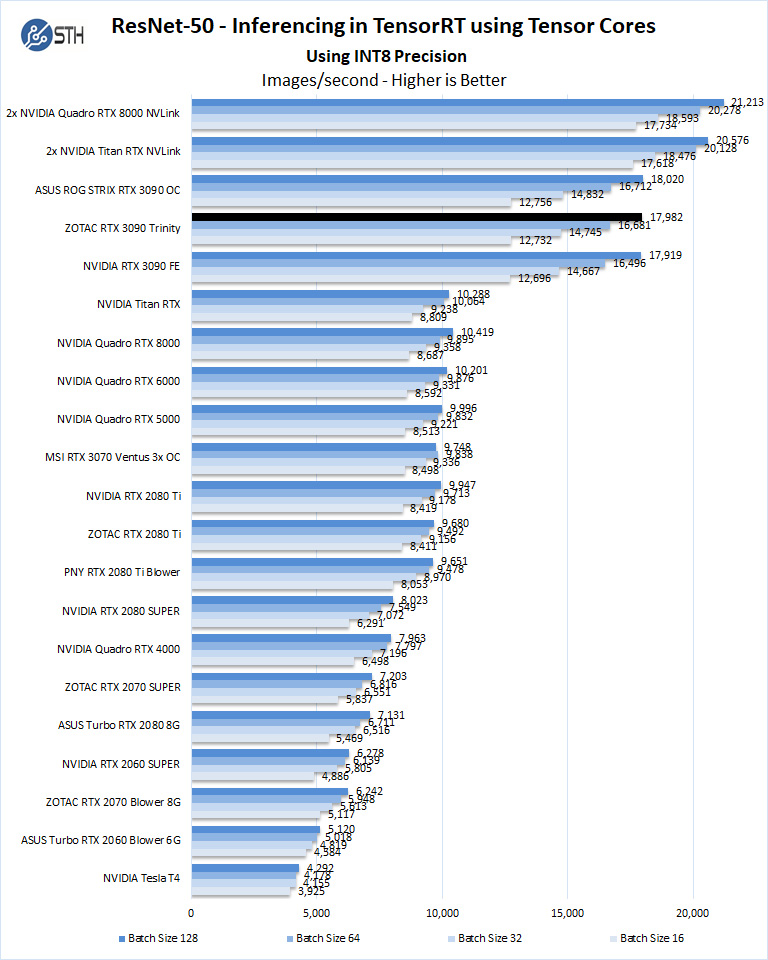
At the same time, if you are interested in relative performance, perhaps that chart is useful to you. We are just going to use our old AI training and inferencing tests to see if there were any noticeable differences from the 15MHz additional boost clock speed.
These are just consolidated by model, training precision, and then batch size. The non-OC card is being used as a baseline of 1.0 and we are just going to show relative performance between the two cards.
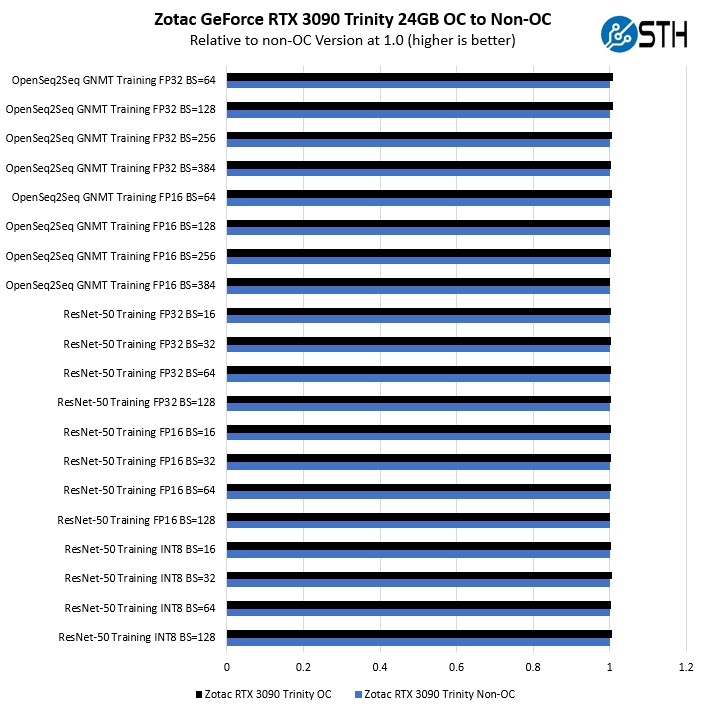
The performance deltas are very negligible on the training side. On the inference side, we are going to see the same:
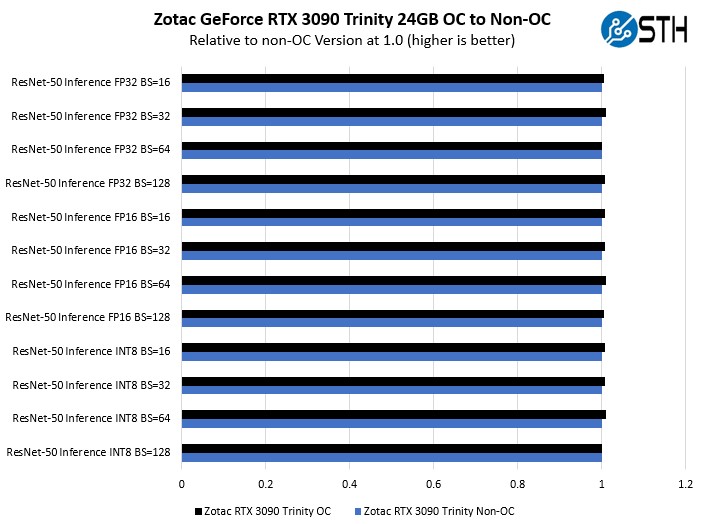
Overall, we saw a very, with an emphasis on *very* minor improvement in results, but generally, this was in the <1% range. We actually had charts made with non-zero X-axis figures to highlight the differences, but in this 1% range, we are at the normal test variation range anyway, so we do not consider these differences to be significant. The newer card, however, was slighly surprisingly consistently the higher figure.
Some will undoubtedly say 1% is 1%. To us, and this will be controversial, a <1% performance increase is relatively negligible.
Final Words
Is the extra performance worth it? In short: no. If the cards are the same cost, then it appears as though the 15MHz overclock is worthwhile. At the same time, it would be very hard to recommend paying a premium for a 15MHz overclock.
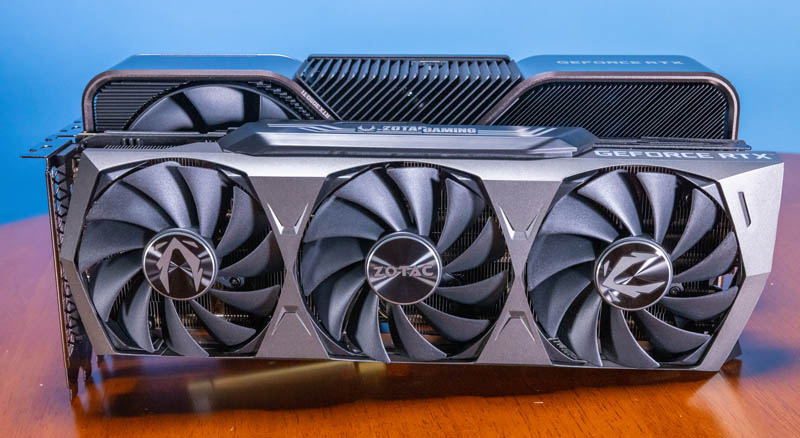
On the other hand, we do want to mention, there are rumors of a new generation of cards coming this fall. We needed a GPU for a build, and ended up finding our old review when purchasing this recently after the How I Got Scammed on an EVGA NVIDIA GeForce RTX 3090 episode.
This was the least expensive card we could find on a limited-time $999 deal to replace that EVGA model. So far, it has worked well for us. These are certainly not the fanciest GeForce RTX 3090’s around, but sometimes one simply needs a big GPU and now. The RTX 3090 Ti is faster, with more compute resources but it also uses more power, has the same amount of memory, and is larger, so it is not a clear win for everyone. What we will simply say is that the small OC on this one does not bring the RTX 3090 to 3090 Ti levels. At a <1% performance increase, the OC is also not something we would recommend paying a large premium for. Still, the card has worked reasonably well for us so there is reason to be thankful for what is here.



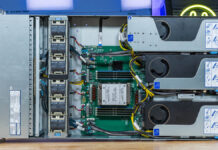
The news for me was that there weren’t any benchmarks where the OC version was slower, as that can actually happen with overclock settings under certain circumstances.